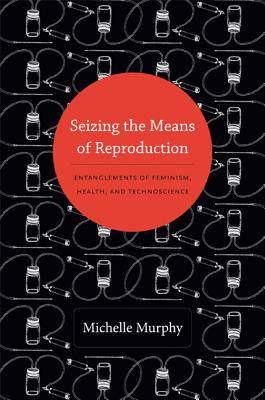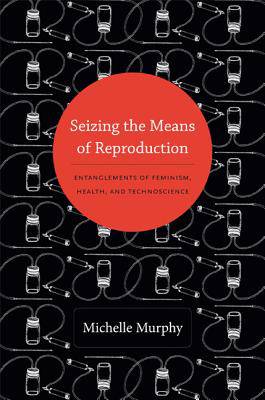
- Retrait gratuit dans votre magasin Club
- 7.000.000 titres dans notre catalogue
- Payer en toute sécurité
- Toujours un magasin près de chez vous
- Retrait gratuit dans votre magasin Club
- 7.000.000 titres dans notre catalogue
- Payer en toute sécurité
- Toujours un magasin près de chez vous
32,45 €
+ 64 points
Format
Description
In Seizing the Means of Reproduction, M. Murphy's initial focus on the alternative health practices developed by radical feminists in the United States during the 1970s and 1980s opens into a sophisticated analysis of the transnational entanglements of American empire, population control, neoliberalism, and late-twentieth-century feminisms. Murphy concentrates on the technoscientific means-the technologies, practices, protocols, and processes-developed by feminist health activists. They argue that by politicizing the technical details of reproductive health, alternative feminist practices aimed at empowering women were also integral to late-twentieth-century biopolitics.
Murphy traces the transnational circulation of cheap, do-it-yourself health interventions, highlighting the uneasy links between economic logics, new forms of racialized governance, U.S. imperialism, family planning, and the rise of NGOs. In the twenty-first century, feminist health projects have followed complex and discomforting itineraries. The practices and ideologies of alternative health projects have found their way into World Bank guidelines, state policies, and commodified research. While the particular moment of U.S. feminism in the shadow of Cold War and postcolonialism has passed, its dynamics continue to inform the ways that health is governed and politicized today.
Spécifications
Parties prenantes
- Auteur(s) :
- Editeur:
Contenu
- Nombre de pages :
- 272
- Langue:
- Anglais
- Collection :
Caractéristiques
- EAN:
- 9780822353362
- Date de parution :
- 26-11-12
- Format:
- Livre broché
- Format numérique:
- Trade paperback (VS)
- Dimensions :
- 155 mm x 231 mm
- Poids :
- 385 g







